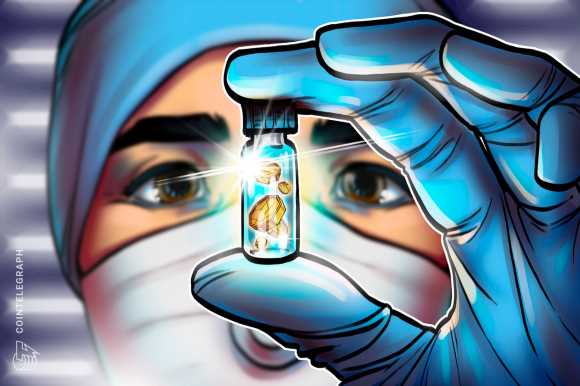Decentralized mental health services could be the answer to the looming shortage of mental health professionals, according to professors from John Hopkins University based in Baltimore.
Speaking to Cointelegraph, Dr. Johannes Thrul from the John Hopkins School of Mental Health postulated that the mental health support sector could take a page from Decentralized Autonomous Organizations (DAOs) by offering support services in a decentralized system.
Dr. Thrul authored a July 22 academic paper looking into “Web3 and digital mental health,” envisioning a decentralized peer support system that relies on “individuals with lived experience” to provide help “based on their expertise in managing their own conditions.”
Dr Thrul said the system would work by using a “crypto token tied to the community” which would be rewarded to those that “make positive contributions to the community,” such as helping someone overcome a mental health issue in a peer support enviroment.
He said the system would not be bound to “border restrictions” noting how quickly governments adapted to remote delivery of health services during the COVID-19 pandemic, though he admitted it could not replace the mainstream medical system alone. Instead, it could be used to supplement seeing a traditional psychologist.
Another professor who contributed to the academic paper, Dr. Luke Kalb said a decentralized peer support system will provide more flexibility and freedom to how we approach mental health issues, stating:
“[The] community can come up with their own creative ways to tackle problems […] this peer support system opens up to so many opportunities for creativity.”
The professors noted that such a system may become essential in the future given the likelihood of a shortage of traditional mental health services in the future with “61% of practicing psychiatrists in the U.S. are nearing retirement.”
Related: Mental health and crypto: How does volatility effect well-being?
The paper also cited research by The Department of Health and Human Services which projects “a protracted national workforce shortage in all mental health professionals by 2025.”
Although the professors have just begun the early stages of research, they are hoping to start building the necessary professional relationships to see this happen. Dr. Thrul said, “it’s tough finding the right technical partnership with the same shared vision […] however we want to put this out there and as a call to read, rally, and reach out.”
Source: Read Full Article
-
Scientists used AI to find and track 95K ‘cryptocurrency free giveaway’ scams on Twitter
-
Bitvavo Crypto Exchange Rejects 70% Repayment Plan from DCG
-
Founder Of Defunct Turkish Crypto Exchange Thodex Handed 11,000-Year Jail Term For $2B Scam
-
Chiliz Heats Up With 10% Rally – Will It Push Higher This Week?
-
Line messenger’s NFT arm raises $140M for Web3 services

